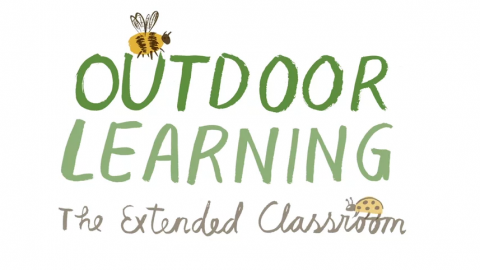Outdoor Learning

Kingswood Primary Academy recognises the immense educational value of Outdoor Learning and Educational Visits for children and requires all such events to be properly planned, managed and approved.
We actively encourage teachers to plan opportunities for children to engage in learning beyond the school. Each year group has a planned programme of educational visits which complement and extend learning. For example, children learning about the ‘Turrets and Towers’ have the opportunity to visit ‘Rockingham Castle’ thus enhancing their learning and understanding of the topic. These are planned into all aspects of the curriculum and, by taking learners beyond their familiar environment, stimulate their curiosity and imagination and motivate children in a powerful way.
- Outdoor learning helps to ensure that children are successful learners enabling children to develop knowledge and skills in ways that add value to their everyday learning experiences.
- Outdoor learning enables children to be confident individuals and impacts positively upon young children’s attitudes beliefs and self-perceptions.
- Outdoor learning contributes towards creating independent learners with high self-esteem and self-sufficiency.
- Outdoor learning can have a positive impact upon children’s behaviour.
- Outdoor learning contributes towards the promotion and children’s understanding of the importance of developing a Healthy lifestyle.
- Outdoor Learning has a positive impact on the mental health and well-being of children and young people.
- Outdoor learning has a positive impact upon children’s personal and social development. It can also bring about community cohesion and allow children to develop as responsible citizens who make a positive contribution to their wider community. It can create pride in the school and wider community and promote community involvement, renewing children’s pride and creating a sense of belonging and responsibility.
- It raises learners’ attainment, promotes and strengthens communication skills, teamwork and sense of cohesion.
- There is clear evidence that boys in particular are more active in their learning in an outdoor environment.
Outdoor Learning is a broad term that includes: outdoor play in the early years, school grounds projects, environmental education, recreational and adventure activities, personal and social development programmes, expeditions, team building, leadership training, management development, education for sustainability, adventure therapy ... and more. Outdoor Learning does not have a clearly defined boundary but it does have a common core... It can include:
- Outdoor play [learning through play], school grounds projects, environmental education, natural history, recreational and adventure activities, personal and social development, and more.
- Outdoor learning involves the transformation of knowledge, skills, attitudes and behaviours through direct engagement with the outdoor environment for the personal and social benefit of children and young people.
Outdoor learning at Kingswood takes place:
- In the academy grounds
- In the local environment
- In the locality around the Academy harbours a wealth of opportunities within relatively accessible distance. Learners can develop their skills to explore their local environment.




Places further afield
We actively encourage teachers to plan opportunities for children to engage in learning beyond the academy grounds. Each year group has a planned programme of educational visits which complement and extend learning. These also support our work in developing enterprise education and our desire to develop more business links and support careers education.
These are planned into all aspects of the curriculum and, by taking learners beyond their familiar environment, stimulate their curiosity and imagination and motivate children in a powerful way.



Residential places
Staying away from home is a powerful way of developing key life skills, building confidence, self-esteem, communication and team working, for example. For instance, staying at an outdoor and adventure centre or taking part in academy sleep-overs, provides children with an opportunity to widen their range of experiences and find new skills and interests in which they may excel.




